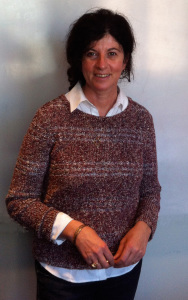by Yomayra Guzman, PhD
 Jelena Radulovic, M.D., Ph.D., is a Professor at Northwestern University’s Feinberg School of Medicine with a dual appointment in the Psychiatry and Behavioral Sciences, and the Pharmacology departments. In 2013, Dr. Radulovic was installed as the Dunbar Professor of Bipolar Disorders. She is also an associate editor for The Journal of Neuroscience and a senior editor for the journal Neurobiology of Learning and Memory.
Jelena Radulovic, M.D., Ph.D., is a Professor at Northwestern University’s Feinberg School of Medicine with a dual appointment in the Psychiatry and Behavioral Sciences, and the Pharmacology departments. In 2013, Dr. Radulovic was installed as the Dunbar Professor of Bipolar Disorders. She is also an associate editor for The Journal of Neuroscience and a senior editor for the journal Neurobiology of Learning and Memory.
Born and raised in Belgrade, Serbia, Jelena has been a scholar since her youth. Encouraged by her academic parents, Jelena learned from early on to nurture her intellect and curiosity about the world – she is fluent in Serbian, German, English, Italian, and French! During her formative years she personally witnessed the debilitating effects of neurological disease and decided to study medicine with a specialization in neuropsychiatry. Jelena received her medical degree from the University of Belgrade in 1988. Once at the “bedside,” she felt helpless because the treatments for neurological conditions at the time were mostly palliative. At that point, she understood the urgent need for basic research in neuroscience. Driven by her passion to understand neurological disease, Jelena completed a PhD in 1993. “At the beginning I hated research. It was messy!” Jelena admitted during the interview. “As a student, you learn about scientific discoveries in textbooks and they are written as facts. This was very different from science, where not one particular experiment is definitive and scientific models are constructed with time.” As time went by she became excited about her discoveries and felt fortunate that, as a researcher, she could be the first one to learn something new about the world.
Her passion for scientific research in neuroscience is palpable. Intellectually, she aspires to understand the intersection between the brain and the mind. By studying the molecular mechanisms that mediate acquisition, retrieval, and consolidation of fear memories, the Radulovic laboratory has identified key neurobiological pathways causing anxiety- and depression-like behaviors. Her academic success has been remarkable, and her research has been showcased several times in local and international news media.
An important piece of advice Jelena offers to young scientists is to not be afraid of debating, since open and honest discussions about their interests is the best way to overcome personal and professional barriers. “If there is one thing we can say about Tim Hunt, it is that his comments opened the door for honest discussions. Women and men all over the world were able to express themselves and make fun of the stereotypes,” Jelena mentioned. Jelena does not feel that her professional goals were negatively affected by her gender. In fact, her male graduate mentors, Professors Branislav Jankovic and Joachim Spiess, were quite progressive and always fostered equality in their laboratories. Influenced by these great mentors and by her own egalitarian ideals, Jelena strives to maintain a supportive atmosphere in her laboratory.
Her commitment to scientific training is obvious; Jelena states that the greatest joy of her profession is seeing her students grow and mature, both professionally and personally, throughout their training. She has mentored a substantial number of people throughout her career, many of whom have succeeded in academic and non-academic professions. In addition, Jelena collaborates with international scientists and provides her professional expertise to promote the creation of research programs in Serbia sponsored by NIH Fogarty International Center funds.
